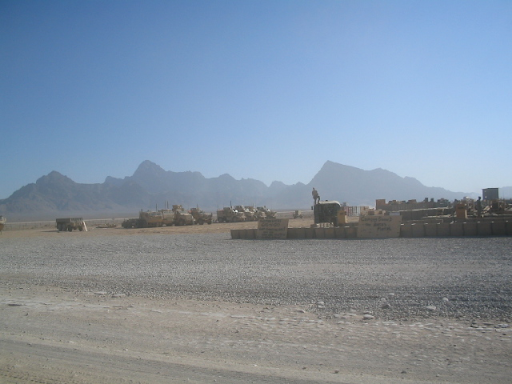核心概念
The author reflects on the futility of the US presence in Afghanistan, highlighting the inevitability of the Taliban's resurgence and the lack of meaningful impact despite years of involvement.
摘要
A veteran shares poignant memories of Afghanistan, emphasizing the cultural divide and futility of US efforts. Despite good intentions, challenges like opium cultivation and Taliban influence overshadowed progress.
客製化摘要
使用 AI 重寫
產生引用格式
翻譯原文
翻譯成其他語言
產生心智圖
從原文內容
前往原文
laurajedeed.medium.com
Afghanistan Meant Nothing
統計資料
By the time you read this, the Taliban may already be in Kabul.
I deployed there twice — once in 2008, and again in 2009–2010.
I remember going through the phones of the people we detained and finding clip after clip of Bollywood musicals.
The third option was to give the farmers fertilizer as an incentive to grow wheat instead of opium poppy.
引述
"I remember Afghanistan as a dusty beige nightmare of a place full of proud, brave people who did not want us there."
"I know how bad the Taliban is. I know what they do to women and little boys."
從以下內容提煉的關鍵洞見
by Laura Jedeed 於 laurajedeed.medium.com 01-30-2023
https://laurajedeed.medium.com/afghanistan-meant-nothing-9e3f099b00e5
深入探究
How can international interventions better consider local perspectives?
International interventions can better consider local perspectives by actively engaging with the communities they are entering. This means listening to the needs and concerns of the local population, understanding their cultural norms and values, and involving them in decision-making processes. It is crucial for intervention forces to respect the autonomy and agency of the locals, rather than imposing external agendas. Building trust through transparent communication and genuine collaboration is key to ensuring that interventions align with the priorities of those directly affected.
What are potential consequences of abrupt military withdrawals?
Abrupt military withdrawals can have severe consequences, as seen in Afghanistan. One major repercussion is the resurgence of extremist groups like the Taliban, who exploit power vacuums left by departing forces. This leads to instability, violence, and human rights abuses against vulnerable populations such as women and minorities. Additionally, sudden withdrawals can erode trust between international actors and local partners who may feel abandoned or betrayed. The lack of a comprehensive exit strategy can result in chaos, displacement, and long-term insecurity for civilians caught in the aftermath.
How does cultural understanding impact military strategies?
Cultural understanding plays a critical role in shaping effective military strategies. Without a deep appreciation for local customs, traditions, social structures, and historical contexts, military operations risk alienating communities they seek to assist or protect. Misinterpretations or ignorance of cultural nuances can lead to unintended consequences such as civilian casualties or inadvertent support for insurgent groups due to misunderstandings about grievances or allegiances within a society. By incorporating cultural sensitivity into planning processes, militaries can tailor their approaches more appropriately to win hearts and minds while minimizing harm during conflicts or peacekeeping efforts.
0
